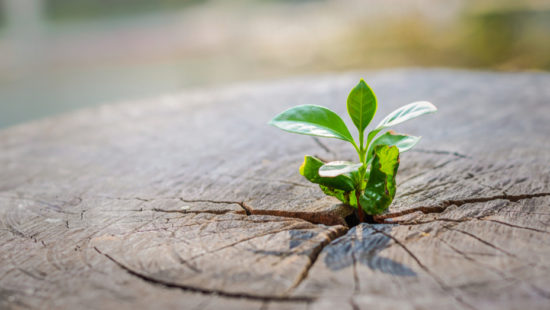10 ways to improve self-awareness
Most of us go through life running on autopilot. We make it through the day – and we don’t wonder why our day went the way it did. We don’t examine how we felt or the actions we took. We don’t practice self-awareness.
You’re not most people though. You want to wake up to your life. You want to see everything with clarity and focus. You may not know it, but that’s the definition of self-awareness.
Self-awareness allows you to improve every area of your life by taking responsibility for your emotions, thoughts and actions. It can increase confidence, creativity and decision-making skills. It can improve your relationships and your career.
But what is self-awareness really? It isn’t a personality trait or a magical spell. It’s something you can develop with the right tools and a powerful desire.
What is self-awareness?
The basic self-awareness definition is the ability to see and evaluate yourself consciously and objectively. It means understanding that no matter your circumstances, you are the one constant in your own life – and you have the power to control it.
There are a few factors to consider when we ask ourselves, “What is self-awareness?” One important part of the self-awareness definition is whether it is internal or external. Internal self-awareness means knowing your own strengths and weaknesses, controlling your emotions and discovering what you value in life – and realizing how it all relates to your own actions.
No one goes through life seeing themselves exactly how others see them. We often have misperceptions of how we affect others. External self-awareness is the ability to understand how others view you and to adjust your actions so that you’re able to have the impact you desire.
To define self-awareness, we must also take into account that there are several different levels. Some people have no self-awareness at all, while others are extremely self-aware. Most of us fall somewhere in between. Many of us believe that we’re more self-aware than we really are. The truth is that without doing the work – actively practicing self-reflection and mindfulness – most of us never reach peak self-awareness.
Top traits of people with self-awareness
To define self-awareness, it’s helpful to look at examples: What does it look like in action? Highly self-aware people demonstrate many of the same traits.

- Humility. Self-awareness means knowing what you don’t know. Self-aware people realize that just as they have strengths, they have weaknesses.
- Forgiveness. Humility helps self-aware people forgive others, because they realize that just as they don’t know everything, neither does anyone else.
- Growth mindset. Self-aware people want to improve on their weaknesses and use their strengths for good. This growth mindset means they seek to improve themselves and the world.
- Emotional mastery. Self-awareness is not just the ability to be aware of your emotions – it’s being able to control them. Emotional mastery is what allows you to grow.
- Confidence. Self-awareness is ultimately about being the best you can be by uncovering your strengths and using them for good. That’s an amazing way to boost confidence.
- Clarity. Once you gain self-awareness, you’ll also gain the ability to see the bigger picture. You’ll realize where you fit in the puzzle of life, and start to see every problem as a gift.

How to develop self-awareness
A self-awareness definition is of no use if we don’t put it into action. Becoming self-aware is a process of monitoring and understanding our emotions, thoughts and actions. It requires time, attention and focus – but being able to live in a beautiful state is worth the effort.

1.Understand the six human needs
All of our decisions are based on six human needs: certainty, variety, significance, connection, growth and contribution. We all place different levels of importance on each need. Understanding your top need is fundamental to your self-awareness.
2. Uncover your limiting beliefs
The meaning we give to each of the six human needs comes from our past experiences. Our experiences also leave us with limiting beliefs that affect the way we see ourselves and others. Deconstructing these beliefs is essential to finding self-awareness.
3. Reflect on your emotions
Our human needs and limiting beliefs affect our emotions, which affect our thoughts. Our thoughts affect our actions. Burying your emotions rarely serves you. Allowing yourself to feel your emotions, without judgment, is the very definition of self-awareness.
4. Take a walk
You can’t reflect on yourself when you’re marathoning Netflix or creating the perfect Instagram post. You need to allow time to quietly be with yourself. One way to eliminate distractions is to take a walk. Walking in nature is proven to reduce anxiety and encourage reflection.


5. Write in a journal
Another way to improve self-awareness through reflection is writing in a journal. Make a list of your strengths and weaknesses. Once you’ve identified those, you can use your journal to set intentions to build upon your strengths and improve your weaknesses.
6. Meditate
Mindfulness practices like meditation, priming and yoga can help you be more present and give you time to reflect. Before you begin, set an intention for what you’d like to think about or discover about yourself. There are always new things to learn.
7. Ask for constructive feedback
To define self-awareness from an external perspective, you’ll need other opinions. Ask trusted friends, family and colleagues how you appear to them. Examine how this constructive criticism makes you feel. If you get a feeling that it “hits close to home,” you’re improving your self-awareness.
8. Feed your mind
Purposely seek out information and perspectives that are different than yours through books, articles and in person. Feeding your mind allows you to compare your own thoughts and feelings to someone else’s, get at the root of your own beliefs and better define self-awareness.


9. Take a test
Personality tests like the DISC Assessment can help you become more self-aware. Do the results contradict with how you view yourself or would you say they’re accurate? Whether you agree or disagree with the results, you’ll get insight into your personality and values.
10. Make it a habit
Many people only begin looking for the answer to the question “What is self-awareness?” when things go wrong or we encounter challenges. But the truth is that self-awareness is a habit, not a one-time goal. We are growing and changing every day, and our self-awareness must change as well.
Ready to put the self-awareness definition into action?
Start by examining your limiting beliefs to create the foundation on which you can build empowering habits.